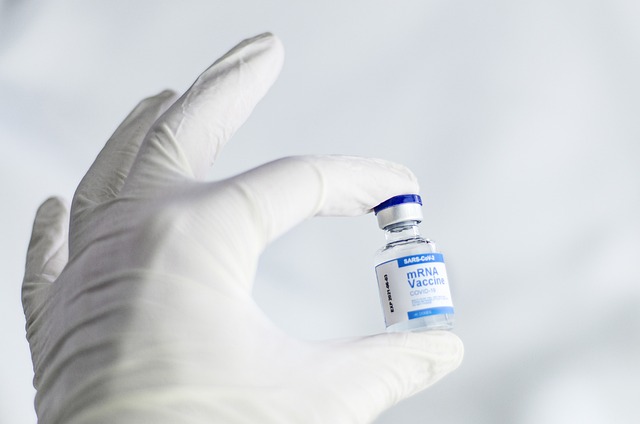Introduction
In the ongoing battle against the COVID-19 pandemic, access to testing remains a crucial aspect of containment and prevention strategies. At-home COVID tests have emerged as a convenient option for individuals seeking to monitor their health status from the comfort of their homes. However, a pertinent question looms: Does health insurance cover the expenses associated with these tests? Let’s delve into the intricacies of health insurance coverage for at-home COVID tests and unravel the mysteries surrounding it.
Understanding Health Insurance Coverage
Navigating the labyrinth of health insurance coverage can be daunting, especially when it comes to understanding what’s included and what’s not. Typically, health insurance plans cover a wide array of medical expenses, ranging from doctor visits to hospital stays. However, coverage for at-home COVID tests may vary depending on several factors, including the type of insurance plan and prevailing regulations. It’s essential to familiarize yourself with the specifics of your insurance policy to determine whether at-home COVID tests are covered.
Types of At-Home COVID Tests
Before exploring coverage options, it’s essential to understand the different types of at-home COVID tests available in the market. These tests vary in terms of methodology, accuracy, and ease of use, ranging from antigen tests to molecular PCR tests. Each type serves a unique purpose, catering to different preferences and requirements. Familiarizing yourself with the available options can help you make informed decisions regarding testing and coverage.
Eligibility Criteria
While health insurance coverage for at-home COVID tests can be a boon, not everyone may qualify for this benefit. Eligibility criteria may vary depending on the insurer and prevailing regulations. Generally, individuals with comprehensive health insurance plans are more likely to have coverage for at-home COVID tests. However, it’s crucial to review your policy documents or consult with your insurance provider to ascertain eligibility and coverage details.
Process of Claiming Coverage
Claiming coverage for at-home COVID tests typically involves a straightforward process, but it’s essential to follow the prescribed guidelines to ensure reimbursement. Start by verifying your eligibility for coverage and obtaining a prescription or recommendation from a healthcare provider, if required. Keep detailed records of your testing expenses, including receipts and documentation. Submit a reimbursement claim to your insurance provider along with the necessary documentation, and await approval and reimbursement.
Exceptions and Limitations
While health insurance coverage offers financial protection for various medical expenses, it’s essential to be aware of potential exceptions and limitations concerning at-home COVID tests. Certain circumstances may warrant denial of coverage or partial reimbursement, such as non-compliance with prescribed testing protocols or exceeding coverage limits. Understanding these exceptions and limitations can help you avoid unexpected expenses and navigate the claims process effectively.
Comparing Different Insurance Policies
Insurance policies vary in terms of coverage, premiums, and deductibles, making it imperative to compare different options before making a decision. When evaluating insurance policies for coverage of at-home COVID tests, consider factors such as coverage limits, out-of-pocket expenses, and network providers. Conducting a comprehensive comparison can help you identify the policy that best aligns with your needs and preferences.
Tips for Maximizing Coverage
Maximizing coverage for at-home COVID tests requires proactive planning and awareness of your insurance policy’s nuances. To optimize coverage, consider obtaining pre-authorization for testing, exploring in-network providers, and adhering to prescribed testing protocols. Additionally, maintain thorough documentation of all testing-related expenses and communications with your insurance provider. By taking these proactive measures, you can enhance your chances of securing maximum reimbursement for at-home COVID tests.
Alternatives for Coverage
In instances where health insurance coverage may not be available or sufficient, alternative options for obtaining at-home COVID tests exist. These alternatives may include purchasing tests directly from manufacturers or utilizing community-based testing initiatives. While these options may incur out-of-pocket expenses, they provide a viable solution for individuals seeking access to testing outside of traditional healthcare settings.
Future Outlook and Implications
The landscape of health insurance coverage for at-home COVID tests continues to evolve in response to changing healthcare needs and regulatory developments. As the pandemic progresses, we may witness updates to insurance policies aimed at expanding coverage and enhancing accessibility to testing. It’s essential to stay informed about these developments and advocate for policies that prioritize public health and safety.
Conclusion
In conclusion, the question of whether health insurance covers at-home COVID tests underscores the intersection of healthcare access and financial protection. While coverage may vary depending on individual circumstances and insurance policies, understanding the intricacies of coverage can empower individuals to make informed decisions regarding testing and healthcare utilization. By leveraging resources, advocating for policy improvements, and staying informed, we can collectively navigate the challenges posed by the pandemic and safeguard our communities’ health and well-being.
FAQs
- Are at-home COVID tests covered by all health insurance plans? Yes, most comprehensive health insurance plans provide coverage for at-home COVID tests. However, coverage details may vary, so it’s essential to review your policy documents or consult with your insurance provider for specific information.
- Do I need a prescription to claim coverage for at-home COVID tests? While some insurance plans may require a prescription or recommendation from a healthcare provider, others may not. It’s advisable to check your policy documents or consult with your provider to determine whether a prescription is necessary.
- What should I do if my insurance claim for at-home COVID tests is denied? If your insurance claim for at-home COVID tests is denied, first review the denial letter or explanation of benefits provided by your insurer to understand the reason for denial. You may then consider appealing the decision by providing additional documentation or seeking assistance from a healthcare advocate.
- Can I purchase at-home COVID tests directly without using insurance? Yes, at-home COVID tests are available for purchase directly from manufacturers or retailers, allowing individuals to bypass insurance coverage if desired. However, out-of-pocket expenses may apply, so it’s essential to consider pricing and affordability when exploring this option.
- Are there any limitations to health insurance coverage for at-home COVID tests? While health insurance coverage typically provides financial protection for at-home COVID tests, certain limitations may apply. These limitations may include coverage caps, out-of-network testing restrictions, and eligibility criteria. Reviewing your policy documents can help you understand any limitations that may affect your coverage.
- What steps can I take to ensure maximum coverage for at-home COVID tests? To optimize coverage for at-home COVID tests, consider obtaining pre-authorization from your insurance provider, using in-network testing facilities, and adhering to prescribed testing protocols. Additionally, maintain thorough documentation of all testing-related expenses and communications with your insurer.







